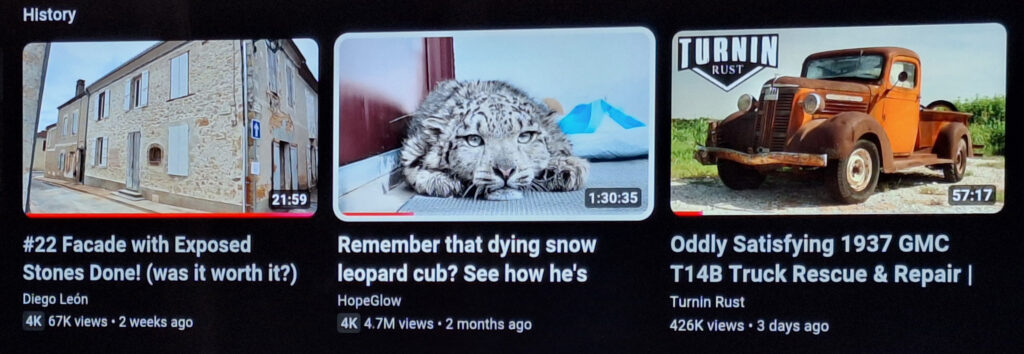Finding rest
Get ready to read about shackles, flowers and The 23rd Psalm.
In this post featuring my sociopathic mother-in-law’s springtime attack letter, I mentioned the concept of mirror verses—biblical truths featured in both the Old Testament and New Testament of the Bible. Today, we’ll begin exploring 12 of my favorites. Some of the mirror verses use identical wording or phrases. Others don’t.
Ask the Lord to show you what he has for you today as we stroll through four sets of mirror verses.
 1. Working for our good
1. Working for our good
If you read part 16 thru part 18 in the story of Joseph, these first mirror verses will be very familiar.
Old Testament truth
“As for you, you meant evil against me, but God turned it into good in order to bring about this present result….”
Genesis 50:20a-b, New Heart English Bible
New Testament mirror
And we know that all things work together for good for those who love God, to those who are called according to his purpose.
Romans 8:28, NHEB
The details
What do we see in this mirror? The Old Testament truth clearly addresses the evil in the situation: “you meant evil against me.” Joseph’s older brothers sold him into slavery when he was 17 years old. The New Testament truth speaks more broadly: “all things work together for good” for God’s elect—his chosen ones, his children. Obviously, “all things” includes very hard things, painful things, bad things. We can find beauty in what God can do with these hard things. And with us.
In the last post, The Gift of the Bible, I unpacked Joseph’s amazing story. We learned the before, during and after of that grizzly evil—when he was sold into slavery by his brothers. Or did we?
My pal Charlene gave me a Psalms word search puzzle book for my birthday. After I finished writing about Joseph, I worked the word search puzzles for Psalm 105. Check out what I found.
Give thanks to the LORD. Call on his name. Make his deeds known among the peoples. Remember his marvelous works that he has done; his wonders, and the judgments of his mouth, you offspring of Abraham, his servant, you descendants of Jacob, his chosen ones.
He called for a famine on the land. He destroyed the food supplies. He sent a man ahead of them, Joseph, sold as a slave. They bruised his feet with shackles. His neck was locked in irons, until the time that his word happened, and the LORD’s word proved him true. The king sent and freed him; even the ruler of peoples, and let him go free. He made him lord of his house, and ruler of all of his possessions; to discipline his princes at his pleasure, and to teach his elders wisdom.
Psalm 105:1, 5-6, 16-22, NHEB
Surprise #1: pain
Two aspects of the scripture passage above jumped out at me. First, verse 18: “They bruised his feet with shackles. His neck was locked in irons, until the time that his word happened….” Was the part about bruising, shackles and being locked in irons figurative or literal? Did it simply symbolize his location—slavery; and later, prison? Or was he actually bruised, shackled and locked in irons? I believe he was.
The transport
When the Ishmaelite traders cruised by and Joseph’s brothers sold him for 20 pieces of silver—a pretty penny back then—the slave traders didn’t welcome Joseph into their posh limo, tell him to get comfy, help himself to some refreshments from the bar, and choose his favorite music to listen to, piped in by the chauffeur up front. He was tossed into their smelly wagon and locked there. They just bought him for 20 pieces of silver. It behooved them to get him intact to market, where they would sell him and rejoice because pay day finally arrived. Joseph, their new commodity, could not run off. I’m confident that Joseph’s feet were indeed bruised in shackles and his neck was locked in irons, along with the other slaves in the wagon. Painful. Shocking. Horrifically frightening.
Found later
These details weren’t included in Genesis. They’re found in Psalm 105, which also celebrates Moses, the exodus, and the Israelites taking over The Promised Land. Even in covering the big story of the birth, slavery and saving of the people of Israel, the psalmist gave us important details about Joseph’s life—things we didn’t really think about before. Thank you, Charlene, for my word search puzzle book! I love how the Lord works.
The hall of faith
Likewise, when Rahab is commended in The Hall of Faith in Hebrews, we’re reminded to admire her for her remarkable courage and faith. Rahab’s story was told in the Old Testament book of Joshua. Her commendation came in the New Testament book of Hebrews. I love that. God gets the final word.
Yes, Rahab was a prostitute. No second grader dreams of being a prostitute when she grows up. Rahab’s life wasn’t what she’d hoped it would be. At all. Still, the Lord had a calling on her life. She obeyed. She was rescued. She was an ancestor of Jesus Christ. And she was commended in The Hall of Faith. I’ll say it again. God gets the final word.
For one of my favorite victory stories, read this post about Samson. It includes prostitution, An Old Testament Billboard, and Samson’s rightful place in The Hall of Faith alongside Rahab. Who else is there? Jacob, Joseph, Moses, David and more.
Surprise #2: rank
Okay. What was the second part of Psalm 105 that caught my attention? Verses 21-22. “[Pharaoh] made [Joseph] lord of his house, and ruler of all of his possessions; to discipline his princes at his pleasure, and to teach his elders wisdom.” How did Joseph interact with Potiphar—his former slave owner? The head of Pharaoh’s security? The captain of the guard? The husband of the woman who falsely accused Joseph of attempted sexual assault? The man who threw Joseph in prison? Joseph was above Potiphar in rank. I sure would like to know that part of the story. Joseph’s position allowed him to “discipline [Pharaoh’s] princes at his pleasure.” I’m chuckling and my eyes are totally buggin‘ out.
It’s time for my favorite Bible verse.
Great is the Lord, and greatly to be praised; and his greatness is unsearchable.
Psalm 145:3, King James Version
Based on Joseph’s devotion to God and everything the Bible tells us about him, I’d use one word to answer my question—“How did Joseph interact with Potiphar?” Rightly. Joseph interacted rightly with Potiphar. Joseph was compassionate to his brothers and forgave them. He was extremely wise. But he was not a pushover. Joseph did the right thing where Potiphar was concerned, whatever that may have been. Can you imagine Potiphar’s face when he realized Joseph was his new boss? Oh, my.
Mirror #1
Let’s look in our New Testament mirror, Romans 8:28. How has God worked all things “together for good” in your life? What hard or painful things became valuable parts of your story, your message, your influence, your compassion, your relationships? I unpacked some examples from my life in part 12 of Joseph’s story. Have you reflected on yours? Close your eyes and do some reflecting and praying. Ask God to show you something you may not have considered before.
St. Matt’s
One of the many ways God worked all things together for my good was in bringing me to work at St. Matt’s, where he took me on The Healing Journey and gave me my new mom, Kathleen. During my 10 years there, hard things were healed. And what was missing—a mother’s love—was found.
The gift
A very special lady on the St. Matt’s flower team puts beautiful flowers on my desk—often at special times. Let’s call her Lisa. Last week, as I prepared for Kathleen’s funeral, Lisa stepped in and put these beautiful flowers on my desk—giving me A Kiss On The Head from Jesus. Thank you, Lord, for these flowers, and thank you for dear Lisa! Most of all, thank you for saving me, loving me, and working all things together for my good.
2. God is for me
Old Testament truth
Then my enemies shall turn back in the day that I call. I know this, that God is for me.
Psalm 56:9, NHEB
New Testament mirror
If God is for us, who can be against us?
Romans 8:31b, NHEB
The only if that matters
I first heard this phrase—The only if that matters—from our preacher, and it stayed with me.
While our son Logan was down in College Station this month, he found himself dealing with some car repairs, which left him feeling vulnerable and unsettled. When we were talking on the phone one day, he started wandering around on What-If Lane. I warned him about the futility and mental danger of traveling there. Most of our fearful if-statements never come to pass; but they steal our peace, big-time. Logan understood.
The only if that matters is found in Romans:
“If God is for us, who can be against us?”
Spiritual warfare
The two verses above—Psalm 56:9 and Romans 8:31b—depict warfare. Enemies. Battle. I will not minimize the power of the darkness—of dark forces and people who serve them. Attacks will come; but God is much more powerful. He will be victorious in the end.
Additional reading:
♦ The Conquerors section
♦ The Armor of God posts
♦ Finding joy in affliction
♦ Addendum regarding evil (at the end)
♦ Index: See Evil and Warfare—Psychological and Spiritual
Demons at work
This spring, a man who was seeking deliverance from demons contacted us at St. Matt’s. I’ll call him Justice. While I was communicating with him via email, some bizarre things happened that have never happened before or since. For a four-day period, large numbers of the emails I sent weren’t delivered for four-plus hours. My attempts to communicate with Justice were being thwarted. He gave me a secondary email as a backup plan and we were ultimately successful. But it was very strange.
After Justice filled out the online intake form I built, his answers were plugged into the wrong form. I sent him the right link, but the form-building website took his answers and threw them onto a different form where they didn’t make sense. And some of his answers were totally missing since they didn’t line up with the wrong form. Technically-speaking, this is impossible. But the demonic forces were at work, don’t you know. I did some troubleshooting and got things fixed.
I will not lie to you. These experiences were creepy. Unsettling. I needed to see, clearly, that we were fighting dark forces. And they were not happy about our attempts to free Justice from their control. Not happy at all. I asked others to join me in prayer for Justice’s deliverance and everyone’s safety. Lord, show yourself mighty in Justice’s life. Free him from every chain and save his soul. Amen.
Yes, demons can manipulate our technology. So can God. Ten years ago, the Lord gave me a Double Miracle Morning involving some technology in my vehicle. Scroll to the end of this post and read Song for Healing. I hope it makes you smile.
3. My shepherd
Old Testament truth
The LORD is my shepherd; I lack nothing.
Psalm 23:1, NHEB
New Testament mirror
“I am the good shepherd. The good shepherd lays down his life for the sheep.”
John 10:11, NHEB
Our Old Testament truth, Psalm 23:1 speaks very personally: “The Lord is my shepherd.”
On Saturday at Kathleen’s funeral, the people said The 23rd Psalm and The Lord’s Prayer in unison. When we were growing up, we all learned The 23rd Psalm and The Lord’s Prayer at church. I hope children today learn them too. I can’t imagine not knowing them.
The psalm, the book and the analogy
The 23rd Psalm gives us a beautiful picture of the Lord’s provision, his attentive care, his desire to be close to each of his children, his protection, and the blessings that flow from being in our shepherd’s care. If you haven’t read it yet, I strongly recommend A Shepherd Looks at Psalm 23 by Phillip Keller. You’ll learn to view Psalm 23 much more deeply—and rightly—from a shepherd’s perspective. Aspects of the psalm that you thought you understood will be completely transformed. For a slight taste, explore the section called The Shepherds in this post.
Why does the Bible use the analogy of shepherds and sheep? Because sheep are utterly helpless without their shepherd. A Shepherd Looks at Psalm 23 will drive this truth home for you in surprising, eye-opening ways. And we are the sheep in every way imaginable.
Mirror #3
Our New Testament mirror verse tells us our shepherd’s name. Jesus spoke these words in John 10. Who is our good shepherd? Jesus Christ. The word good makes all the difference.
In Phillip Keller’s gem, A Shepherd Looks at Psalm 23, he includes details about how a bad shepherd impacts his sheep. Those details will shock you; but it’s important to drink in and process that not all shepherds are good. I don’t know why this aspect of the book came as such a surprise to me. Having worked for Child Protective Services and having encountered my sociopathic in-laws and my own parents, I knew quite well that not all parents are good. Why, then, did I naively presume that all shepherds were good? I can’t explain it.
In John 10:11, Jesus tells us a second vital truth: “The good shepherd lays down his life for the sheep.” And that’s exactly what Jesus did. He suffered and died for us. Why? To pay the penalty for our sin. To reconcile us to God. To save our souls. For more on those subjects, dig into the section called Why Jesus Died in this post.
Clarity
Some people may take exception to the second half of Psalm 23, verse 1: “I lack nothing” or, in the King James Version, “I shall not want.” These words pointedly assert that all my basic needs are met. Wait a minute. Maybe that’s not what it means—in the most extreme sense.
Peaceful Readers, there are Christians and little children in this world who will starve to death today. They clearly lacked food. What does the verse mean, especially for those in truly dire circumstances? The Lord is my shepherd; I lack nothing. I think of it this way. If the Lord is my shepherd—if I belong to God—my ultimate need has been secured. My salvation has been won. My eternity in heaven is assured.
My one essential need has been met. And who met my one essential need? My Lord, Jesus Christ—The Good Shepherd.
4. Finding rest
Old Testament truth
Thus says the Lord: “Stand by the roads, and look, and ask for the ancient paths, where the good way is; and walk in it, and find rest for your souls.”
Jeremiah 6:16a-c, Revised Standard Version*
*Revised Standard Version of the Bible, copyright © 1946, 1952, and 1971 the Division of Christian Education of the National Council of the Churches of Christ in the United States of America. Used by permission. All rights reserved.
New Testament mirror
“Come to me, all you who labor and are heavily burdened, and I will give you rest. Take my yoke upon you, and learn from me, for I am gentle and humble in heart; and you will find rest for your souls.”
Matthew 11:28-29, New Heart English Bible
Action words
While we know that the Lord chooses and calls his people, the verbs in these two scriptures punctuate our participation in receiving the gift of salvation—in saying: “Yes!” In Jeremiah 6:16, God tells us to stand, look, ask, walk and find. In Matthew 11, he tells us to come, take, learn and find.
If I were to write a Bible study, it would be on Jeremiah 6:16—an epic treasure. Ancient paths. The good way. Finding rest. Interestingly enough, this verse is nestled in a chapter filled with death and destruction. God warned his people through the prophet Jeremiah about their impending destruction due to their pervasive sin.
“Flee for safety…; for evil looks forth from the north, and a great destruction.”
Jeremiah 6:1a, d, NHEB
Invitation and refusal
Even more interesting, Jeremiah 6:16 gives God’s invitation to everything good and sound and lasting, but the final phrase of Jeremiah 6:16 goes like this:
But they said, “We will not walk in it.”
Jeremiah 6:16d, NHEB
In other words, God told the people and showed the people where the good way was—the way to rest. But they didn’t want it. They said no. Not “maybe.” Not “I’ll think about it.” But “no.” A big, fat, decisive “no.”
They were free to say no. But there were consequences.
Mirror #4
Our Old Testament truth teaches about a path—the good way. Our New Testament mirror verse tells us about Jesus and a gift. “Come to me, …and I will give you rest” (Matthew 8:11, NHEB). I never really thought about rest as a gift, but it’s a tremendous gift. When we’re burdened, low or super-tired, we can acknowledge our desperate need for relief and rest.
Check out this excellent article from GotQuestions.org: “What is the significance of Jesus saying: “I will give you rest” (Matthew 11:28)?”
What kind of rest is Jesus talking about? He calls it “rest for your souls”—the same words used in our Old Testament verse—Jeremiah 6:16. Jesus isn’t talking about a power-nap or catching up on some sleep. While those things are definitely blessings, and we thank God for them, Jesus was talking about something far deeper.
A soul at rest
What does it mean for my soul to be at rest?
To boil it down to one sentence, I would say this:
A soul at rest knows Jesus personally as Lord and Savior and walks with him.
In other words, a soul at rest doesn’t just know about Jesus; a soul at rest knows Jesus and keeps him close—in love, honor and prayer. (To explore the peace and power of prayer, start reading The Prayer here on Choosing Peace.)
A soul at rest keeps Jesus in his rightful, preeminent place. “He is God and I am not.” Frankly, it’s a massive relief not to need all the answers. God has the answers. If he wants to share one with me, he will. If not, that’s absolutely golden.
Assurance
Some Christians carry the burden of not knowing if they’re “really” saved. Their fear and lack of assurance keep them in a worrisome mindset about the most important things—their salvation, right standing before God, ready access to God, their place in God’s heart as his beloved, and experiencing the power and presence of the Lord. If you’re plagued by doubts in this area, listen to the sermon “Assured by the Holy Spirit” and other sermons in this series called Assured.
A deep dive
I highly recommend Dane Ortlund’s book Gentle and Lowly. It explores the compassionate heart of Christ and our New Testament mirror passage in Matthew 11 in the most beautiful way. For Gentle and Lowly, A Shepherd Looks at Psalm 23 and more Frankie Ann Faves, see this Resources page.
 The Texas Rangers and quiet TV
The Texas Rangers and quiet TV
This month, Brandon and I began watching more peaceful things on TV. We started watching the Texas Rangers. They are fabulous! We quickly became big fans.
Also, we said, “Buh-bye, action movies. Hello, quiet TV.”
The quiet list
Here are some of our favorites. They have varying degrees of quietness. See if some of them bless you too.
1. Diego León—home renovation in France
Compilation/timelapse video
Episode 1 of this renovation
2. The injured snow leopard cub
3. SB Mowing
Weekly community service—one yard at a time
4. Renovating an abandoned 100-year-old workshop
5. Bringing a rusted-out 1930s truck back to life
6. Cobbler G—a Scottish cobbler
7. A Norwegian builder and sculptor
Top two—quiet TV
We watch Diego León regularly. We really enjoy the scenery, music, and quiet confidence and progress of his renovation of a very old little house in southern France. Very quiet, peaceful stuff. Absolutely delightful.
We watch the video about an injured snow leopard cub a little at a time. It is precious and there is no talking—only soft music, with written words to narrate the story. It encourages me about seemingly slow, one-day-at-a-time progress toward strength. And it encourages me about the importance of rest. Did I mention that I’m on vacation this week? I am. And it’s all about rest. That has been the Lord’s word to me this year: Rest.
Sweet TV
There are also many sweet videos done by everyday people. We’ve enjoyed Cowboy Kent Rollins and his outdoor cooking. My pal Charlene likes “Cooking with Brenda Gantt.” (I watched her “Peaches and cream” video yesterday. What a honey.) Brandon found Sampson Boat Co. during COVID and loved watching people come together to rebuild the historic wooden boat, Tally Ho. Current videos show the owner sailing and maintaining the majestic boat. We also enjoy Wristwatch Revival because the craftsman, Marshall, truly loves his work and demonstrates remarkable patience and joy.
We’re rejecting Hollywood and embracing
decent people doing worthwhile things.
Thanks be to God.
The videos and channels I’ve featured remind me of this verse:
And whatever you do, work heartily, as for the Lord and not for men….
Colossians 3:23, World English Bible
As for me, I’m resting heartily while the good people described above are working heartily. And that’s okay. To every thing there is a season.
Coming next: We’ll explore more Old Testament gems and their New Testament mirror verses—God’s purpose, light, fruit….
Until next time, thanks for reading and for Choosing Peace.
Truth from The Word: Ecclesiastes 3:1-8
Song: “Be Still” by Abriele Cole & “Of Valor”
More: To stay current on recent posts, sign up for my monthly newsletter.




